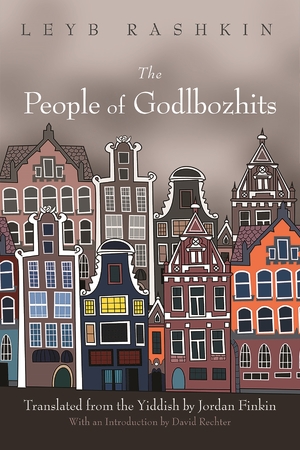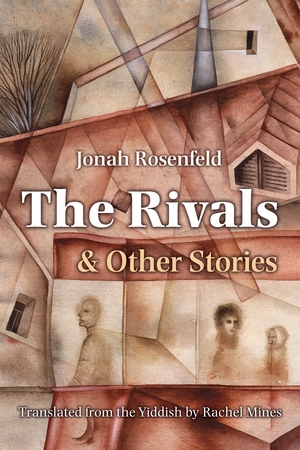"The novel is an element—an important, albeit neglected, one—in the puzzle of Yiddish literature created in the pre-Holocaust decades of the 20th century. Jordan Finkin’s excellent translation gives a chance to include Rashkin’s literary legacy in the contemporary academic discourse."—Gennady Estraikh, clinical professor of Hebrew and Judaic Studies, New York University
"A major work capturing the penultimate hour of Polish Jewish existence. . . . It is both hilarious and gruesome. The act of translating [it] is an invaluable gift for mankind, for we are offered an inside view of a battered but still vibrant Jewish world that no one could have expected to be exterminated to its roots within three years."—Seth Wolitz, professor emeritus, Schusterman Center for Jewish Studies, University of Texas
"Captures a lost world with compassion, literary style and some humor."—Jewish Week
"The People of Godlbozhits is a vivid dissection of a fictional shtetl based on the author’s hometown of Kazimierz Dolny in eastern Poland. Jordan Finkin’s translation marks an enormous endeavor."—Jweekly.com
"Everyone into Yiddish needs to add this book to their list."—The Reading Life Blog
"The appearance of Rashkin’s novel in translation is, accordingly, a boon for Polish-Jewish and Yiddish Studies."—The Polish Review
"The novel reads like an amalgamation of the seamy newspaper stories in Eddy Portnoy’s 2017 Bad Rabbi. If you need to learn that the shtetl was not idyllic, this is the book for you. . . . English readers are lucky that Finkin has made it accessible."—Slavic Review
Description
First published in 1936, The People of Godlbozhits depicts the ordinary yet deeply complex life of a Jewish community, following the fortunes of one family and its many descendants. Set in a shtetl in Poland between the world wars, Rashkin’s satiric novel offers a vivid cross-section not only of the residents’ triumphs and struggles but also of their dense and complicated web of humanity. With biting humor and acerbic wit, Rashkin portrays the stratified society—the petty bourgeoisie, artisans, and proletariat—observing the crookedness at every level. The novel’s brisk and oftentimes lively Yiddish prose and its colorful and irascible cast of characters give readers a Yiddish Yoknapatawpha in all its tragic absurdity.
About the Author
Leyb Rashkin (pen name of Shol Fridman; 1903/4–1939) was born in Kazimierz Dolny, where he was the manager of a cooperative bank and of several hardware stores. The People of Godlbozhits was awarded a literary prize by the Polish Jewish PEN club.
Jordan Finkin is a librarian at the Klau Library of the Hebrew Union College in Cincinnati. He is the author of several books, including An Inch or Two of Time: Time and Space in Jewish Modernisms.
September 2017




